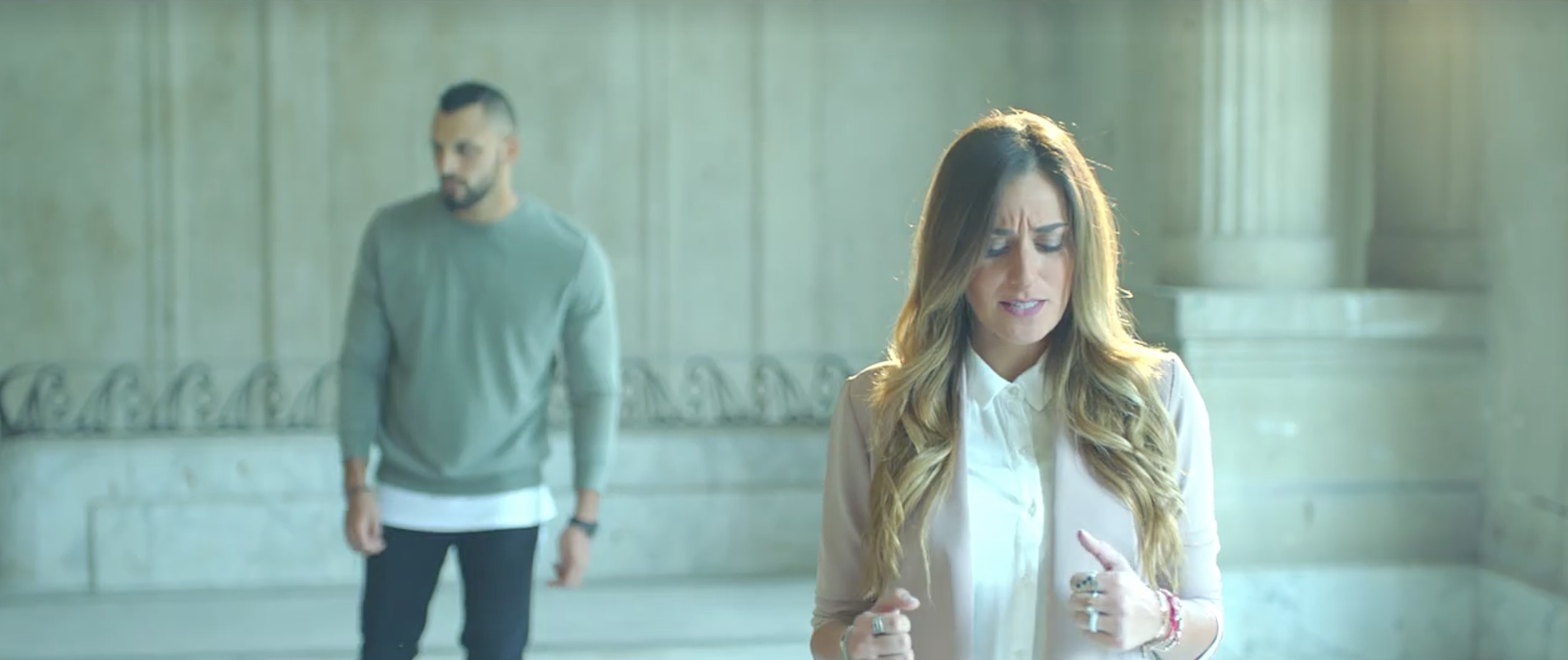For many, “Nour”, the video performed by Amina Khalil and Zap Tharwat, is about women empowerment, but for us it is about the empowerment of an entire society. “When you as a male empower a woman and give her rights, you are empowering yourself and your entire society and making it stronger as a whole,” Zap, the mind behind the idea and lyrics, tells us. This song and video, which was done in collaboration with The National Council for Women, UN Women Egypt, and the Embassy of Japan in Egypt, was absolutely genius and touched a very deep part in all viewers.
“The interviewee discovers that Nour is a female, a young beautiful adult, and not a male.”
It starts off with Zap talking about an interviewee reading the CV and story of a young man named Nour. Nour has taken care of his younger sisters, went down to his Father’s mechanics shop after his father got severely sick, and managed to fit in time to study for his engineering major. He inevitably missed classes due to his situation, but doctors valued him and understood his struggle. He finally graduated with great success, but unfortunately the happiness was short lived with the death of his father. The interviewee finishes reading the CV and decides that Nour is hired.
After Zap intricately finishes his first verse, Amina comes in the chorus with her part, ending her sultry part with “the role of ‘him’ will never be complete without the role of ‘her'”. Till now we don’t understand how the story thus far expresses that, till Zap begins to sing the second and final verse. Upon calling Nour in for an interview, the interviewee discovers that Nour is a female, a young beautiful adult, and not a male.
The verse continues to describe the emotional and mental struggle of the interviewee as he discovers this reality. The struggle eventually leads him to break his sexist thoughts, value and admire Nour and give her the job.
“What we need is much greater than female empowerment, we need human empowerment,” – Amina Khalil
“To me, empowerment is about being true to yourself,” Amina says. Amina has never experienced a sexist situation similar to Nour’s, but acknowledges that our society is male dominated. To her, every single member of our society needs empowerment. “What we need is much greater than female empowerment, we need human empowerment,” she says.
The idea of this video sparked after a conversation Zap had last year during a project he was conducting. “We began to question why speaking about women’s rights in Egypt always annoys people. There is this belief that feminists have this specific repelling character. Even when we try to give women rights, we see stereotypes being built, this is when the idea came to me,” Zap says. To further elaborate, he explained that generally speaking if you were to ask someone to chose between working on a campaign for women’s rights or for children’s rights, they would automatically chose children’s rights due to their discomfort towards the idea of women’s rights. Zap decided to create the story of the song in a way that attracts viewers and is unseen before. “I decided to do it in a way that draws the viewer in, gets them so attached to this character and reality, then put a twist that changes it all,” he says.
“All the parts where Amina appears, have the most light and brightness and windows.” – Zap Tharwat
This video is about breaking stereotypes and sexism, to empower both males and females. It shows Nour as initially male as a basis, to show that yes, males do struggle in our society and they can do it with capabilities. Then upon discovering that Nour is female, the basis is shock and expanded to fit in a female, and we are shown that yes, and so can females. “If you notice, all the parts where Amina appears, have the most light and brightness and windows, and at the end of the video she is standing in front of me,” Zap says, adding “We are equal, but at this moment in time, she needed to be ahead of me and that is ok. Having these subconscious messages in the video’s execution was extremely important as well.”
“We are all created equal, but not the same,” – Amina Khalil
“Generally speaking, we live in a very judgemental society,” Amina says. Although Amina values and acknowledges the differences between males and females and acknowledges that males and females do have differences, she also believes that just because a person is male doesn’t mean they have a third arm. “We are all created equal, but not the same,” she explains.
As Amina says in her chorus, “this very world moves because we are on the same page”. This very sentence is the essence of feminism, which is about the empowerment and equality of both genders. The empowerment of an entire society, that moves forth as a complete whole.

